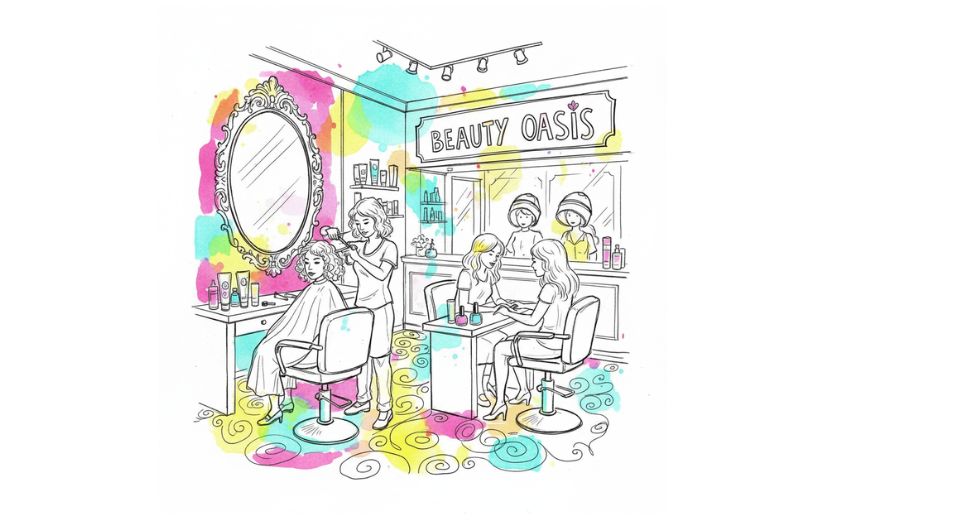
Oct 03, 2025

Metastat Insight, a reputable source of market intelligence and strategic foresight, released an in-depth research report called Beauty Salon Market. The report details the changes taking place in the Beauty Salon industry as a result of changing lifestyles, innovation in personal care services, and technology shift across customer experience/service delivery.
To access the entire study and extensive market intelligence, view the full research study: https://www.metastatinsight.com/report/beauty-salon-market
The Beauty Salon industry has transitioned from a service-oriented business model to a holistic ecosystem that embodies self-care, personalization, and wellness. Salons are now experience-led, place-based settings for grooming services and opportunities for holistic restoration and personal expression. The most recent research from Metastat insight highlights how consumer expectations, brand partnerships, and digital experiences are enabling changes in salon services using multiple markets globally.
Service Portfolio Transformation: Beauty Salons are modernizing to offer more than cuts, styles, and facials. The report identifies the opening of more niche categories like scalp treatments, nail design, textured hair services, organic facials, and aesthetic wellness. Salons are more able to attract different segments of clients and use their service variety to create customization that improves client retention.
Rise of Personalization and Consultation Models: Personalization is a core element of success within the salon space. Professionals are attempting to personalize service by introducing skin and hair diagnostics through the use of data, AI-enabled consultations, and even services that match clients with products. This systemized approach to the beauty process establishes trust, optimizes collaborative outcomes, and improves the overall client experience.
Tech-Focused Client Experiences: The emergence of digital booking systems (think AKP), AR-based try-on tools, and virtual consultations have made the Beauty Salon sector both more accessible and interactive. Mobile apps and customer relationship management (CRM) platforms help manage scheduling, loyalty, service reminders, etc. — all of which reinforce the process of brand recall and the process of providing additional convenience to the client.
Incorporating Wellness into Offerings: The study shows a growing intersection of wellness and beauty. Beauty businesses are providing treatments for stress relief, aromatherapy rituals or restorative experiences centered on achieving balance in physical and emotional health. Engaging in wellness and beauty together raises an understanding of the current consumer mindset around consciously being intentional with choices and engaging in self-care behavior.
The Rise of Sustainable and Ethical Business Models: Sustainability represents an opportunity to create a competitive advantage. Salons are offering cruelty-free/vegan/plant-based lines, minimizing their use of plastic, conserving water, making sustainable furniture investments, offering refilling stations and actively partnering with clean beauty product lines all in the spirit of communicating a shared commitment responsible environmental practice.
Franchising and Boutique Models: At the same time, boutique salons that provide artisanal and high-touch services are appealing to urban customers who desire exclusivity and local uniqueness. Based on metastatic insight, franchise-based models are globally expanding because of their established model, brand, and consistency of training.
Regional Overview: The research will consider the market landscape in North America, Europe, Asia-Pacific, Latin America, and the Middle East and Africa. There are two primary drivers of innovation for developed economies, namely the aspects of premiumization and sustainability. Emerging regions are experiencing growth due to increased disposable incomes coupled with the urbanization phenomenon.
Social media and Influencer Marketing: The ability to attract attention to a brand for a Beauty Salon continues to stem more from the use of influencer marketing and storytelling via social media. Social media platforms like Instagram and YouTube are consistently considered fuels for customer engagement and word of mouth in terms of content in short-form fashion, tutorial, along with before-and-after formats.
Training and Skills Development: Metastat Insight highlights the importance of ongoing professional training. Certified courses, workshops, and online education are options for stylists and aestheticians to learn the latest techniques, formulations, and hygiene training, contributing to quality service and client trust.
Health, Hygiene, and Safety: The post-pandemic awareness has solidified health and safety as the consumer's number one priority. Salons that adhere to health standards when it comes to sterilization, use single-use tools, and have front-of-house safety practices; are offering the consumer confidence.
Male Grooming and Gender-Neutral Services: The study identifies rising participation of male clientele and increasing demand for gender-inclusive spaces. Salons offering grooming and skincare solutions for all genders are establishing themselves as progressive and socially attuned businesses.
Adopting Membership and Subscription Models: To encourage consistent engagement, a lot of salons want to offer loyalty programs, prepaid memberships, and subscription packages with different tiers. These are successful because they help make predictable revenue while incentivizing clients for their loyalty with specific perks.
Competitive Environment: The Beauty Salon sector is comprised of international chains, independent studios, and new startups, all structured to allow the leaders of this sector to innovate service delivery, source sustainably, and be omni-channel accessible. Value creation will only increase in a world where partnerships with cosmetic brands and wellness experts take a collaborative approach.
What's Next: Metastat Insight sees the next evolutionary stage of the Beauty Salon sector being driven by AI-led personalization, immersive salon experiences, and cross-disciplinary partnerships with fashion, wellness and hospitality. Given the elevated consumer aspirational landscape shift into authenticity, inclusivity, and quality; salons that can reimagine provide salon experiences while being tied to a human connection will hold a competitive advantage.
The complete report published with Metastat Insight's research provides a wide lens for viewing the Beauty Salon sector as a zone of a creative space integrating service, technology, and wellness. With the changing world of social lifestyles and lifestyle-specific consumer preferences and desires, the Beauty Salon sector will continue to be an essential component of self-expression and self-care for many in contemporary society.
Drop us an email at:
Call us on:
+1 5186502376
+91 73850 57479